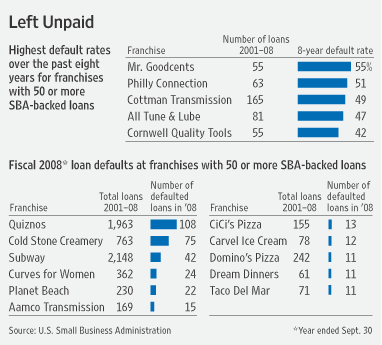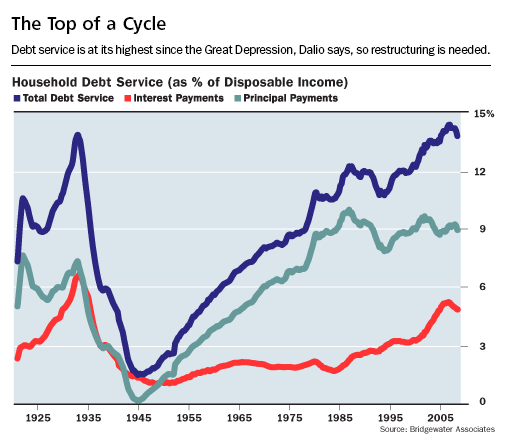Economic Crisis Impacts All Borrowers
Jumbo mortgages, typically loan amounts above $417,000, are defaulting at a rapid pace as the economic crisis affects borrowers at all income levels. Bloomberg is reporting that jumbo mortgages, typically associated with higher income home owners, are becoming the next black hole for the banking and housing industry.
(Bloomberg) — Luxury homeowners are falling behind on mortgage payments at the fastest pace in more than 15 years, a sign the U.S. financial crisis that began with the poorest Americans has reached the wealthiest.
About 2.57 percent of prime borrowers who took out jumbo loans last year were at least 60 days delinquent, according to LPS Applied Analytics, a mortgage data service in Jacksonville, Florida. They got to that level within 10 months, almost twice as quickly as 2007 borrowers and the fastest rate since at least 1992, when LPS Applied Analytics began tracking the market.
The jump in late payments on jumbo loans, while still lower than the 20 percent delinquencies in subprime mortgages, signals that the borrowers with the most money and the best credit are hurting as the U.S. recession deepens in its second year. It also means these loans will be even more difficult to obtain and more expensive to pay off.
Most of the mortgage defaults do not appear to be caused by poor loan underwriting but rather by growing job losses among high income earners. Due to the higher level of defaults, banks are becoming very reluctant to make jumbo mortgages for either purchases or refinances. Since Fannie Mae and Freddie Mac will not buy or insure jumbo loans, the lending bank must assume all the risk, keep the loan on their books and set aside additional reserves for possible losses. All of these additional risk factors are reflected in the higher jumbo rates and strict loan underwriting guidelines.
The difference in interest rates between jumbo loans and prime conforming mortgages, or mortgages eligible for sale to Fannie Mae and Freddie Mac and available to borrowers with top credit scores, had been about 20 basis points “for several decades,” according to BanxQuote CEO Norbert Mehl.
The difference between the jumbo interest rate and the prime conforming rate was 181 basis points on Feb. 18, according to Bloomberg data.
“The only jumbo mortgages being written right now have strict qualification criteria both in the credit rating of the borrower and the down payment requirements and they are nearly impossible to qualify for,” Mehl said. “Some lenders quote a jumbo rate but they don’t make the loans.”
Conforming Loans At 7%?
An interesting point to note is that the size of a mortgage loan is not the determining factor for the interest rate. Mortgage rates are based on many factors but the primary reason for higher rates on jumbo mortgages is the lack of a government agency guarantee. This implies that without price support from the government, conforming mortgages would also be in the 7% range to reflect the actual risk of mortgage lending in today’s environment.
No Relief In Sight For Jumbo Mortgage Homeowners
Given the higher risk on jumbo mortgages due to the factors cited above, homeowners who have high rate jumbo mortgages are unable to refinance to lower rates. In addition, the proposed mortgage plans meant to help distressed homeowners provides no assistance for jumbo mortgage homeowners.
Jumbo Mortgage, Jumbo Headache – Wall Street Journal
Washington is trying to ease the mortgage crisis by helping people refinance into home loans with better terms. But one group is being left on the sidelines: borrowers with loans too big to qualify for government backing.
President Barack Obama’s housing stability plan, announced last week, excludes such borrowers from nearly all of its mortgage-bailout provisions. Instead, it focuses on middle-income consumers who have lower, so-called conforming loans. Such loans top out at $417,000 in most parts of the country
Anything bigger is called a “jumbo” loan — and not only is the government ignoring this segment of the market, so are lenders, few of whom are originating or refinancing jumbo mortgages. The reason: Jumbo loans are too large to be guaranteed by a government-backed mortgage agency, such as Fannie Mae or Freddie Mac, meaning banks assume the risk if the loan goes bad. In the current lending environment, few banks want to take on any risk.
“Every single day I’m talking to people who have a jumbo loan, and I can’t do anything for them,” says Jeff Lazerson, a mortgage broker in Laguna Nigel, Calif.
While total mortgage originations fell by 17% in the fourth quarter from the previous quarter, jumbo originations fell by 42% to $11 billion, according to Inside Mortgage Finance. That’s the lowest volume ever tracked by the trade publication, which has figures dating to 1990.
ING Direct, a unit of ING Groep NV, is one of the few lenders that is boosting jumbo originations, though it requires a minimum 30% down payment in the most expensive housing markets, up from 20% earlier last year. For condos, ING requires a minimum 45% down payment.
“If you have been able to … save for a down payment, that to us speaks volumes about your character,” says Bill Higgins, ING’s chief lending officer.
Some banks, though, are quoting much-higher jumbo rates. Mortgage brokers say that indicates that lenders are reluctant to make jumbo loans and are setting their prices high to deter new deals. For example, Taylor, Bean & Whitaker Mortgage Corp. in Ocala, Fla., recently listed a 7% rate on a 30-year fixed-rate jumbo loan, but charges up-front origination fees equal to 5% of the loan.
Real-estate professionals say that the lack of financing for high-income consumers is putting extra pressure on affluent communities and causing prices to fall even further. “The million-dollar-and-above market is sinking like a lead weight,” Mr. Lazerson says.
Jumbo Mortgage Rates Reflect Lending Risks
Jumbo borrowers are discovering the meaning of “pricing for risk”. Mortgage lending has become a very high risk business due to the continuing decline of real estate values, the high risk of default due to economic conditions, principal impairment and/or rate reductions from loan modifications, the risk of bankruptcy court cram downs and government supported foreclosure moratoriums. Some may incorrectly believe they are entitled to a low rate mortgage regardless of risk factors. This peculiar belief by both banks and borrowers helped to create the destructive credit crisis we are now experiencing. The banks are doing what they need to do with jumbo mortgages- setting rates to properly reflect risk.




